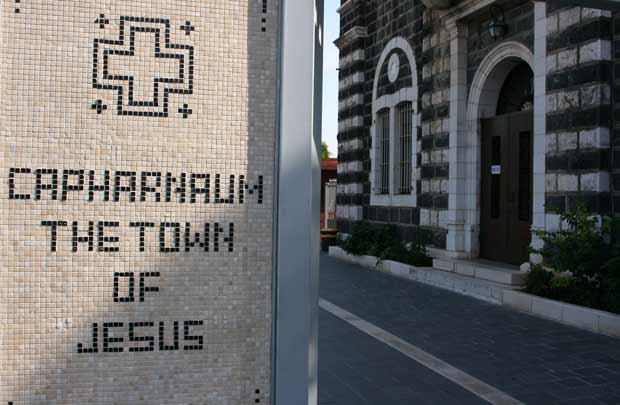
“The Spirit of the Lord God is upon Me,
Because the Lord has anointed Me
To preach good tidings to the poor;
He has sent Me to heal the brokenhearted,
To proclaim liberty to the captives,
And the opening of the prison to those who are bound;
2 To proclaim the acceptable year of the Lord,
And the day of vengeance of our God;
To comfort all who mourn,
3 To console those who mourn in Zion,
To give them beauty for ashes,
The oil of joy for mourning,
The garment of praise for the spirit of heaviness;
That they may be called trees of righteousness,
The planting of the Lord, that He may be glorified.”
 During the life of Jesus, Capernaum was a small fishing village on the northern shore of the Sea of Galilee. It also served as the central location of His ministry. It was at Capernaum that people came from all over the Galilee, the sick, the crippled, the blind, the lame, the paralyzed, the fallen, the unholy, the condemned, and the outcast. And it was at Capernaum that JESUS received them and showed them mercy and forgiveness. It was there that He showed them compassion and restored their lives and faith in God.
During the life of Jesus, Capernaum was a small fishing village on the northern shore of the Sea of Galilee. It also served as the central location of His ministry. It was at Capernaum that people came from all over the Galilee, the sick, the crippled, the blind, the lame, the paralyzed, the fallen, the unholy, the condemned, and the outcast. And it was at Capernaum that JESUS received them and showed them mercy and forgiveness. It was there that He showed them compassion and restored their lives and faith in God.
Capernaum was located on a major trade route (a branch of the Via Maris) where travelers would come and rest as they made long journeys. These travelers would hear about the MIRACLES and TEACHINGS of Jesus and communicate them in other cities and towns on their journeys.
Capernaum was a translation of its REAL NAME. The first part, Caper, stands for the Hebrew kaphar and can be translated as village. The second part, naum, stands for the Hebrew name Nachum, the same name as the prophet Nahum. So, Capernaum could be called “the village of Nahum.”
Why would JESUS choose ‘the village of Nahum’ as the center of His ministry? There is no record of any connection between Capernaum and the prophet Nahum. And if there was another Nahum, we have no record of his existence. But there are no accidents or coincidences in the Kingdom of God.
If we go deeper, we find something beautiful. Nachum is not just a name; it is a Hebrew word filled with meaning. It means to comfort, to console, and to repent. So, Capernaum could be translated as…
“the village of comfort”
“the village of repentance”
“the village of consolation”
